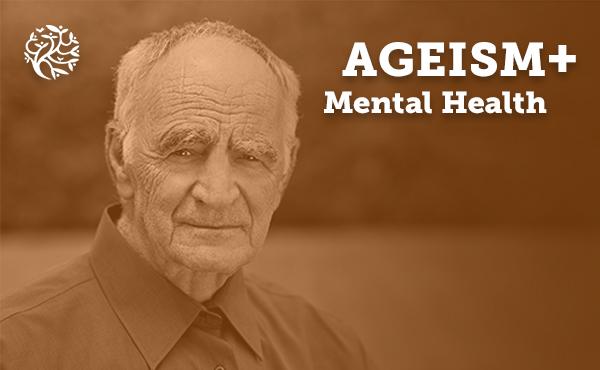The Who famously hoped to die before they got old. Sadly, they were voicing an attitude that is all too common.
Older people are less likely to seek help for mental health needs – is ageism to blame?
As a Consultant Old Age Psychiatrist, one of the things I find most frustrating is when I come across the attitude that being old inevitably means being depressed, lonely and/or being confused. These conditions are seen as a natural and inevitable part of ageing – so why bother trying to treat them? This belief is, of course wholly incorrect. But it is astonishingly pervasive, and has horribly negative results: it leads to older people being less likely to seek help; if they do seek help, being less likely to be diagnosed; and even if they are recognised as ill, being less likely to be referred for psychological treatment.
The unconscious bias that works against older people
This discriminatory attitude can be seen among health professionals, in the media, and among older people themselves.
Within the health service older people are stereotyped as bed-blockers, draining our precious resources. Older patients are often seen as frail, ill, dependent, and incompetent. This sort of perception has been shown to affect physicians’ decisions, leading them to be less likely to diagnose a mental disorder and therefore less likely to treat the older person.
This unconscious bias often goes unrecognised. As a result, the needs of older people are not being met. Research has shown only 1 in 6 older people with depression receive a diagnosis. That is 5 in 6 who miss out on the chance of receiving psychological services, even though this type of treatment has been shown be more effective for them than working age adults.
A lack of media attention, particularly positive stories
The media also reinforce this stereotype. Other than hearing about dementia, when did you last hear a story about an older person recovering from a mental illness? But by contrast, I bet you can remember reading a good-news story about a younger person being successfully treated for a mental illness.
As a result of this pervasive discrimination, older people themselves have low expectations around their own mental health.
I was horrified that my mother, a retired GP, herself had the attitude that “Depression is just part of being old”. The older generation are often not used to talking about their emotions or mental health and still feel stigma in the prospect of seeking help for mental health issues.
National policy – and funding – focuses on younger people…
The impact of this ageist discrimination towards older adults’ mental health is, I believe, profoundly negative. National policy has continued to focus on younger people. Important policy initiatives such as the Five Year Forward View for mental health have paid little attention to the specific needs of older people, resulting in the National Workforce Strategy for the future failing to even mention the need for a staff who can meet the needs of older people.
Funding for older people’s mental health is deprioritised. The most recent audit of investment in older people’s mental health services published in August 2012 showed that investment in older people’s mental health services has been falling in both absolute and real terms – despite the backdrop of strongly rising demand for services.
… and so does local policy…
Ageism also has an effect at the local level. In a survey by Age UK, some 40% of the Mental Heath Trusts in England were found to have no over-arching policy for supporting people with mental and physical co-morbidities and only three had policies that specifically mentioned older people.
… despite the well-recognised growth in the population of older people
It is not as if the population of older people is a small one. In fact this issue is getting more important every year. We have a growing and ageing population. Every day 200 more people reach the age of 85, with the population aged 85 and over projected to double to 3.2 million by mid-2041. There will be a 30% increase in people over 65 by 2030.
The need for better mental health services for older people is there and it is growing, but the policies are not there to meet these challenges.
Challenging negative attitudes and stereotypes
To deal with the effects of ageism, we need to change attitudes and challenge the negative stereotypes. Within health and social care, we need a more informed workforce that better recognises the different ways mental health problems present themselves in older people and the benefits of treatment.
By and large, now we don’t die before we get old, but attitudes need to change for us to look forward to an old age where our mental health is properly looked after.
I am proud that my faculty is publishing a detailed paper on age discrimination in mental health. If you would like to learn more about this topic, look out for this publication in September on the Royal College of Psychiatrists website.
Dr Amanda Thompsell is the Chair of the Faculty of Old Age Psychiatry at the Royal College of Psychiatrists
Have you been affected by any of these issues?
If you have been affected by any of the issues described in this blog, or simply need someone to reach out to, you can call the Mind helpline for information and advice on 0300 123 3393 or text 86463.
The views and opinions expressed in this article are those of the author and do not necessarily reflect the policy or position of Independent Age.
